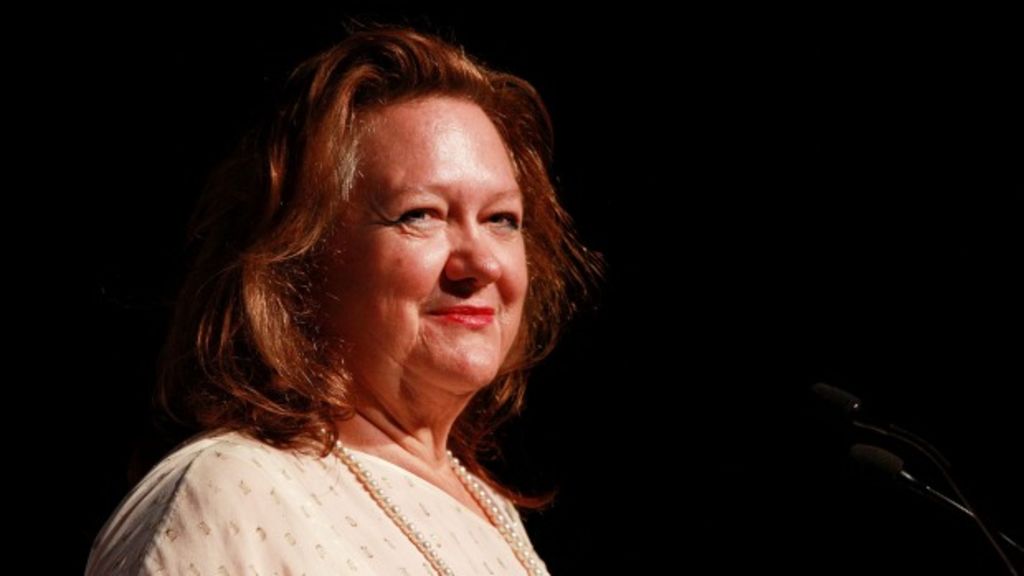
Gina Rinehart the sole Australian on Forbes list of world's most powerful women
Latika Bourke
She is one of the country’s richest and most divisive figures and she’s Australia’s only representative on Forbes list of the world’s 100 most powerful women.
Gina Rinehart has been named the world’s 51st most powerful woman by the magazine, which regularly ranks global figures on their wealth and ability to influence public policy.
A mining magnate, Ms Rinehart is also well known because of her public battle with her children as they fought over the family fortune, as well as for her patronage of senior coalition figures, including Deputy Prime Minister and Nationals Leader Barnaby Joyce.
Valued at $US9.9 billion ($13.4 billion), Forbes says the daughter of Lang Hancock, “took her late father’s bankrupted estate and rebuilt it into something much larger.”
She ranked 37th on the list last year and 66th in 2014.
BRW estimated her $14.02 billion fortune more than halved to $6.06 billion in 2016, mostly due to falling iron ore prices.
Rinehart comes in behind Scotland’s First Minister Nicola Sturgeon and in front of Nepal’s Bidya Devi Bhandari.
German Chancellor Angela Merkel tops the list for the sixth year in a row. Merkel’s personal standing in Germany has fallen because of her open-door policy for refugees fleeing Islamic State in Iraq and Syria.
But the magazine praised her “latest act” as “her boldest.”
“By opening Germany’s borders to over one million immigrants from Syria and other Muslim countries in the last several years, Merkel has decided to wield her power with the most curious of geopolitical strategies: sheer humanism.”
The likely Democratic Presidential nominee Hillary Clinton is second on the list.

The highest-ranked British figure is the Queen who is ranked the 29th.
The list also provides a boost for two of the women vying to become the next United Nations Secretary General amid calls for Ban ki-Moon’s successor to be female.
Former New Zealand Prime Minister and Administrator of the UN Development Programme Helen Clark ranks 22nd, one spot higher than in 2015.
Ms Clark is considered a front-runner and will be fierce competition if fellow antipodean and former Australian Prime Minister Kevin Rudd throws his hat in the ring, as is widely expected.
Forbes dropped celebrities Angelina Jolie and Taylor Swift from its list and said it was focussing instead on women breaking into political roles.
Bulgaria’s Irina Bokova who in 2009 became the first woman to head UNESCO ranks 69th. “A female Secretary-General, and one hailing from Eastern Europe, are both considered long overdue,” the magazine notes.
Speaking on CNN, Argentina’s Susana Malcorra, who does not appear on the list, asked “why not” when pointing out that a woman has never held the position in its 70-year history.











